Search Results
Showing results 901 to 920 of 1054
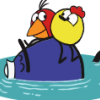
From Here to There
Source Institutions
In this water activity, learners discover ways to move water across the water table.
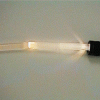
Glue Stick Sunset
Source Institutions
In this activity, learners explore why the sky is blue. Learners model the scattering of light by the atmosphere, which creates the blue sky and red sunset, using a flashlight and clear glue sticks.
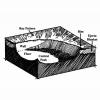
Mars Perseverance Activity: Mud Splat Craters
Source Institutions
In this activity, learners explore the physics of impact craters from their own backyard using mud. Learners are encouraged to match features of real impact craters to their models.

A Cubic Foot Per Second
Source Institutions
In this activity, learners measure and calculate the amount of cubic feet various containers contain. Next, learners investigate cubic feet per second (cps), by carrying jugs in one second.
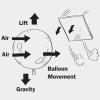
Sky Floater Challenge
Source Institutions
In this design challenge activity, learners make a balloon hover at eye level for five seconds, and then make it move by creating air currents.
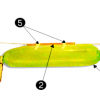
Balloon Rocket
Source Institutions
Experiment with force and pressure by building a balloon rocket. When launched, the balloon will run a track wherever you place the string.
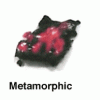
The Crayon Rock Cycle
Source Institutions
In this activity, learners use crayons to draw conclusions about rocks and the rock cycle.
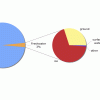
Earth's Water: A Drop in Your Cup
Source Institutions
This creative lesson plan provides a visual way for learners to gain knowledge about the finite amount of fresh water on Earth and encourages the discussion of the various ways to conserve this resour
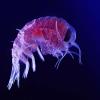
Amphipods: More than Mud
Source Institutions
In this data analysis and environmental science activity, learners examine the effects of pollution on amphipods using data from the Chesapeake Ecotox Research Program.
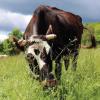
Sustainable Grazing
Source Institutions
In this activity, learners investigate the food, water, and space needs of common livestock animals.
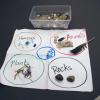
Beach Buckets
Source Institutions
In this activity, learners explore a bucket of sand and beach objects.
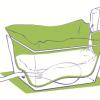
Make a Model Caldera
Source Institutions
In this quick activity (page 2 of PDF under GPS: Lava Flow Activity), learners will model how large depressions near the top of a volcano are formed by using an inflating and deflating balloon submerg

Our Beautiful World
Source Institutions
In this Bob the Builder(TM)-themed activity, learners go on a nature walk outside and describe what they observe using their senses.
Hexagon Hunt
Source Institutions
This activity gets learners looking at 6-sided shapes in nature, including the cells of a beehive, as well as other shapes.

Why do Hurricanes go Counterclockwise in the Northern Hemisphere?
Source Institutions
In this kinesthetic activity, learners will play a game with a ball to demonstrate the Coriolis force, which partly explains why hurricanes in the Northern Hemisphere rotate counterclockwise.
Pósteres Sobre el Espacio y Matemáticas
Source Institutions
Exponga estos pósteres en el salón o déjelos donde los chicos los puedan explorar. Los chicos buscan las respuestas en línea, en libros de consulta, y en calendarios y almanaques.

Shake it up with Seismographs!
Source Institutions
In this activity, learners explore the engineering behind seismographs and how technology has improved accurate recording of earthquakes.
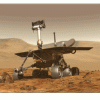
Design a Lunar Rover!
Source Institutions
In this team design challenge (page 2-10 of PDF), learners design and build a model of a Lunar Transport Rover that will carry equipment and people on the surface of the Moon.
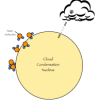
Do Cities Affect the Weather?
Source Institutions
In this activity, learners explore clouds and how they form.
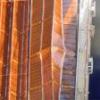
Folding Matters
Source Institutions
In this activity, learners explore how the process of folding has impacts on engineering and is evident in nature.
